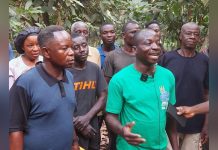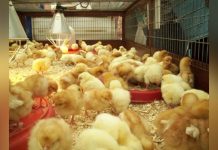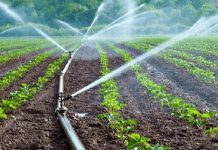Africa-Press – Ghana. Professor Samuel N. A. Cudjoe, former Director of Regional Institute for Population Studies (RIPS), University of Ghana, said women empowerment required a comprehensive approach and wider stakeholder engagement to make it more effective.
He mentioned the involvement of traditional and local governance structures, capacity enhancement and advocacy as some of the means to enhance greater support for the activities for women.
Prof Cudjoe was speaking at a dissemination workshop to highlight achievements and lessons learnt from a project RIPS and its partners carried on, “Empowering Women and Transforming Gender Relations in the Volta Delta.”
The project builds on the findings of the Delta’s vulnerability and Climate Change: Migration and Adaptation (DECCMA) study on the Volta delta area in Ghana.
He identified traditional leaders, local government agencies (MMDAs) as well as women groups and individuals as actors that need to work together to ensure greater support for the empowerment of women. The 12-month project was implemented in two districts of the Volta Region, namely, the South Tongu District and the Keta Municipal Assembly.
It builds the capacities of the women in the targeted districts to obtain expertise and skills in alternative livelihoods; business management and marketing; packaging and storage of agricultural products; and accessing microfinance for their businesses.
The project was carried out with a grant from the Ministry of Foreign Affairs of the Netherlands and the International Development Research Centre (IDRC), Canada, as part of the Climate and Development Knowledge Network (CDKN) Programme.
It was led by RIPS and the Institute of Environmental and Sanitation Studies (IESS), in partnership with Pro-Link, a nongovernmental organisation promoting equitable development of rural and urban poor, especially women and girls and in collaboration with Kulima Integrated Development Solutions, based in South Africa.
Prof Cudjoe said the overall vision of the project was to empower women and transform gender relations in the Volta delta through the integration of gender-responsive climate actions into existing practices around efficient utilisation of accessible land, to address over-concentration on local markets, the monotony of crops grown, lack of alternative livelihood opportunities, lack of agribusiness expertise including packaging and storage as well as limited access to microfinance options.
He announced that a baseline survey conducted as part of the project revealed that women faced significant challenges in their capacity to utilise lands available to them for increased economic returns.
He said to support responsive and adaptive livelihoods with the overall vision to empower women in the Volta Delta, through capacity building for the efficient use of lands, a needs assessment was conducted to identify the capacity needs of women to efficiently utilise their lands.”
“Financing remains a major challenge to women’s groups due to their informal nature, formalising these groups by registering them as cooperatives with the MMDAs would increase their credibility for financial access in the future,” he added.
Ms Bernice Mpere Gyekye, an official from Pro-Link, said they had identified key stakeholders who had shown interest in the project and had greatly supported their activities on the ground and expressed their Gratitude for the gestures.
The participants emphasised the need to link the women groups to the local actors and the district assemblies to patronise their products as well as access financial assistance, while they look elsewhere for international donor support.
They are also of the view that it was about time that a study was conducted into problems facing men in the coastal communities and come out with a solution that will put both women and men at the Volta delta on the same levels.
Some of the problems identified include erosion of landing sites, competition with pet trawlers, and light fishing, among others. According to them, the problems had forced most fishers to migrate, and others have changed jobs from fishing to ‘trotro’ drivers to adapt to climate change’s effect on their livelihood.
For More News And Analysis About Ghana Follow Africa-Press







